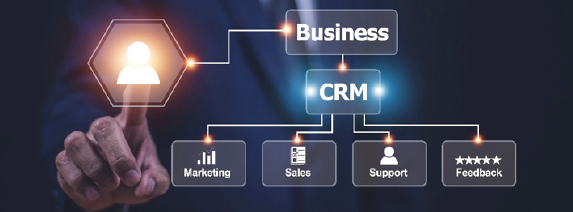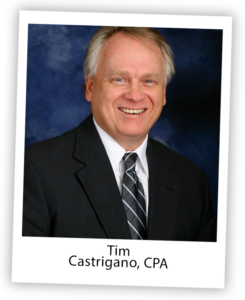If I Can’t Increase Your Cash Flow In 30 Days
My Services Are FREE!
 Aiden’s Adventures: Growing,
Aiden’s Adventures: Growing,
Playing, and Exploring!
Our grandson Aiden is now in second grade, which is a time of tremendous growth, both academically and personally. Aiden is learning about:
● Responsibility ● 2. Teamwork & Cooperation ● Patience & Perseverance ● Kindness & Empathy and ● Trying New Things.
It looks like Grade 2 Life Lessons are really important! And he is trying new things. He’s developed a love for soccer, showing great energy and teamwork on the field. In addition to sports, Aiden is also enjoying gymnastics, where he’s building strength and flexibility. He continues to impress us with his violin skills. His dedication to learning music is truly inspiring. This year, Aiden experienced another first, his very first cruise! He had an amazing time exploring new places, enjoying the ocean views, and making wonderful memories with family.
INSIDE THIS ISSUE
• Retirement – What’s The Best Age to Retire
• Do You Have Enough Saved?
• CRM – What Is It and Do I Need It
• Cash Flow: Reserves; Expenses & Reconciliation
REVIEW 
“It is a pleasure to work with Tim. He readily relies on his strong overall business acumen to align, translate and communicate strategic activates into expected financial outcomes. In addition, he identifies and executes key day to day activates to achieve desired financial outcomes. Tim is able to roll up his sleeves and dig into details as well as provide key summaries. He has been an asset to our organization and would be a great addition as a CFO on demand for your company”
Jeff Minnick – Board Member –
Hitchcock Center For Woman
Navigating the Path to Retirement: Key Considerations for a Fulfilling Future

Retirement marks a significant transition, presenting both opportunities and challenges. To ensure a fulfilling and financially secure retirement, it’s essential to address several critical questions: When should you retire? What is the optimal age to retire? Should you consider part-time work during retirement? And, CRUCIALLY, have you saved enough to sustain your desired lifestyle?
1. Determining the Right Time to Retire
Choosing when to retire is a deeply personal decision influenced by various factors, including financial readiness, health, career satisfaction, and personal aspirations. While many individuals plan to retire between the ages of 65 and 67, studies show that the actual average retirement age is closer to 61.
2. Identifying the Optimal Retirement Age
The “BEST” age to retire varies based on individual circumstances. Financially, retiring at full retirement age (FRA) ensures you receive full Social Security benefits. For those born between 1943 and 1954, the FRA is 66; it gradually increases for those born in subsequent years, reaching 67 for individuals born in 1960 or later.
Opting to receive benefits before your FRA results in a permanent reduction, while delaying benefits beyond your FRA can increase your monthly benefit.
For example, starting benefits at 62 can reduce your monthly amount by up to 30%, whereas delaying until 70 can result in a
higher monthly benefit. Beyond financial considerations, personal factors such as health, job satisfaction, and life goals play pivotal roles.
3. Considering Part-Time Work in Retirement
Engaging in part-time work during retirement offers several benefits:
● Supplemental Income: Additional earnings can help stretch retirement savings.
● Continued employment can provide a sense of purpose and opportunities for social engagement, which are vital for mental and emotional well-being.
● Health Benefits: Staying active through work can contribute to better physical and mental health outcomes.
4. Assessing Your Retirement Savings
Determining whether you have sufficient savings requires a thorough evaluation of your expected expenses, lifestyle goals, and potential income sources. A common guideline suggests aiming to replace approximately 80% of your pre-retirement income to maintain your standard of living.
This can be achieved through a combination of Social Security benefits, pensions, and personal savings.
Key considerations include:
• Housing Costs: Will you remain in your current home, downsize, or relocate?
• Healthcare Expenses: Medicare coverage starts at 65, but out-of-pocket expenses can be significant. Long-term care insurance may also be worth considering.
• Inflation Impact: The cost of living rises over time. Ensure that your investments and savings are structured to keep pace with inflation.
• Emergency Funds: Unexpected expenses, such as home repairs or medical bills, can quickly deplete savings if you’re not prepared.
Retirement is a multifaceted journey that requires careful planning and introspection.
It’s never too early—or too late—to plan for retirement. Whether you’re in your 40s looking to build a strong financial foundation, in your 50s assessing your progress, or in your 60s finalizing your transition, a well-thoughtout retirement strategy can make all the difference. Engaging with financial advisors and leveraging available resources can further enhance your retirement planning process, helping you make informed decisions tailored to your unique situation allowing you to enjoy your golden years with confidence and financial stability.
Conclusion
By thoughtfully considering when to retire, evaluating the optimal age based on your circumstances, exploring the possibility of part-time work, and ensuring adequate savings, you can pave the way for a fulfilling and secure retirement.

CRM: What Is It and Why Businesses Need It
CRM (Customer Relationship Management) is a software tool that helps businesses manage interactions with current and prospective customers through an automated multi-step follow-up system. It centralizes customer data, sales tracking, marketing automation, and support services into one system.
The goal of a CRM is to increase current customer sales, keep in touch with and convert prospective customers, assist with
customer retention, and improve customer service relationships. All of which ultimately drives sales growth and increases profits.

What a CRM Can Do for Your Business
1. Centralized Customer Data
• Stores customer details, purchase history, and commun cation logs in one place.
• Helps your team quickly access relevant information to improve customer service.
2. Sales and Lead Management
• Tracks leads from first contact to conversion.
• Automates sales tasks like follow-ups, reminders, and customer tracking.
3. Marketing Automation
• Automates email campaigns, social media interactions, ads and personal follow-up.
• Helps segment customers for personalized marketing.
• Tracks campaign performance and ROI.
4. Customer Support and Service
• Manages customer inquiries, tickets, and complaints in one system.
• Automates responses and assigns tasks to support teams.
5. Improved Collaboration
• Allows multiple team members to access and update customer records.
• Ensures sales, marketing, and support teams work together efficiently.
6. Data-Driven Insights and Reporting
• Generates reports on sales performance, customer behavior, and business trends.
• Helps businesses make informed decisions based on real-time data.
7. Increases Productivity and Efficiency
• For accounting professionals, specialized CRM systems can offer tailored features that address industry-specific needs, improving client management and operational efficiency.
Where Is My Cash Going? Key Strategies for Effective Financial Management
Understanding your business’s cash flow is essential for maintaining financial health and ensuring sustainability. To gain clarity on where your cash is going, consider the following strategies:
1. Establish Adequate Cash Reserves
Maintaining sufficient cash reserves acts as a financial safety net, enabling your business to navigate unexpected expenses or economic downturns. A common guideline suggests setting aside enough funds to cover three to six months of operating expenses. This range provides a buffer to manage unforeseen challenges without jeopardizing operations.
2. Regularly Review Expenses Against Your Budget
Consistently monitor your expenses in comparison to your budget. Implementing a cash flow forecast can help you project future inflows and outflows. Regular reviews help in making informed decisions and adjusting strategies to align with financial goals.
3. Reconcile All Bank Accounts Regular bank account reconciliation ensures that your financial records accurately reflect your actual cash position, aids in detecting errors, preventing fraud,
and providing a clear picture of your cash flow.
By implementing these practices: maintaining adequate cash reserves; diligently reviewing expenses against your budget; and regularly reconciling bank
accounts; you can gain better control over your finances and ensure your cash is being utilized effectively to support your business objectives.

Doors of Hope Drive for Dreams Golf Event July 25 10:00 am
What We Do
Doors of Hope is a nonprofit organization. Our mission is to provide a sanctuary of hope for homeless families having at least one child under the age of 18. We offer shelter and supportive services empowering families toward healthy, independent living.

Our Program
The Doors of Hope provides more than a roof and meals:
- Temporary housing.
- Food, laundry, and basic necessities are provided.]
- Assessments of each family to identify services and benefits needed.
- Assistance with housing search, employment and education.
- Educational enrichment for children.
- Linkage with 50 community with other nonprofit agencies, organizations, and churches to provide additional help where it is needed most.
There are 4 ways you can help
- Businesses can donate to Doors of Hope Geauga at a sponsorship level and/or donate a prize.
- Sign up for golf! Why not get a couple of your golfing friends. You’ll have a great and rewarding day of golf, dinner, friendship and… get a tax deductible receipt!
- Not a Golfer? Then join us for dinner to help those families that need our help and… get a tax-deductible receipt!
- If you can, send us a donation of any amount to help us reach our goal.
If you have any questions, would like more information about the
event, sponsorship opportunities, or donating a prize for this
event please call me at (330) 348-3932 or email me at Tim
castriganocpa.com.
CERTIFIED PUBLIC ACCOUNTANT
 Tim has been in accounting since 1988 and specializes in strategic planning to help small business clients achieve their goals. Through helping establishing these goals and objectives of our clients, we focus on the key performance indicators that will help drive performance and improve bottom line results. Tim has extensive experience in retail, healthcare, non profit, and public accounting.
Tim has been in accounting since 1988 and specializes in strategic planning to help small business clients achieve their goals. Through helping establishing these goals and objectives of our clients, we focus on the key performance indicators that will help drive performance and improve bottom line results. Tim has extensive experience in retail, healthcare, non profit, and public accounting.
Tim has an innate ability to cut through the noise and discover the true cause of the problem. He is an expert at implementing cost effective solutions to improve profit and eliminate the source of problem.
Bank Reconciliation
Successful businesses know and monitor their numbers. Having this information in a timely manner can save you a lot of stress, grief and potentially hundreds or thousands of dollars.
Don’t be lazy on this.
• Yes, you need to reconcile your account(s) every month!
• A separate person from the one paying the bills needs to be doing this.
• Helps prevent fraud.
• Positive pay on your account to avoid fraud.
• All accounts with payments should be reconciled
i. Line of credit
ii. Credit cards
